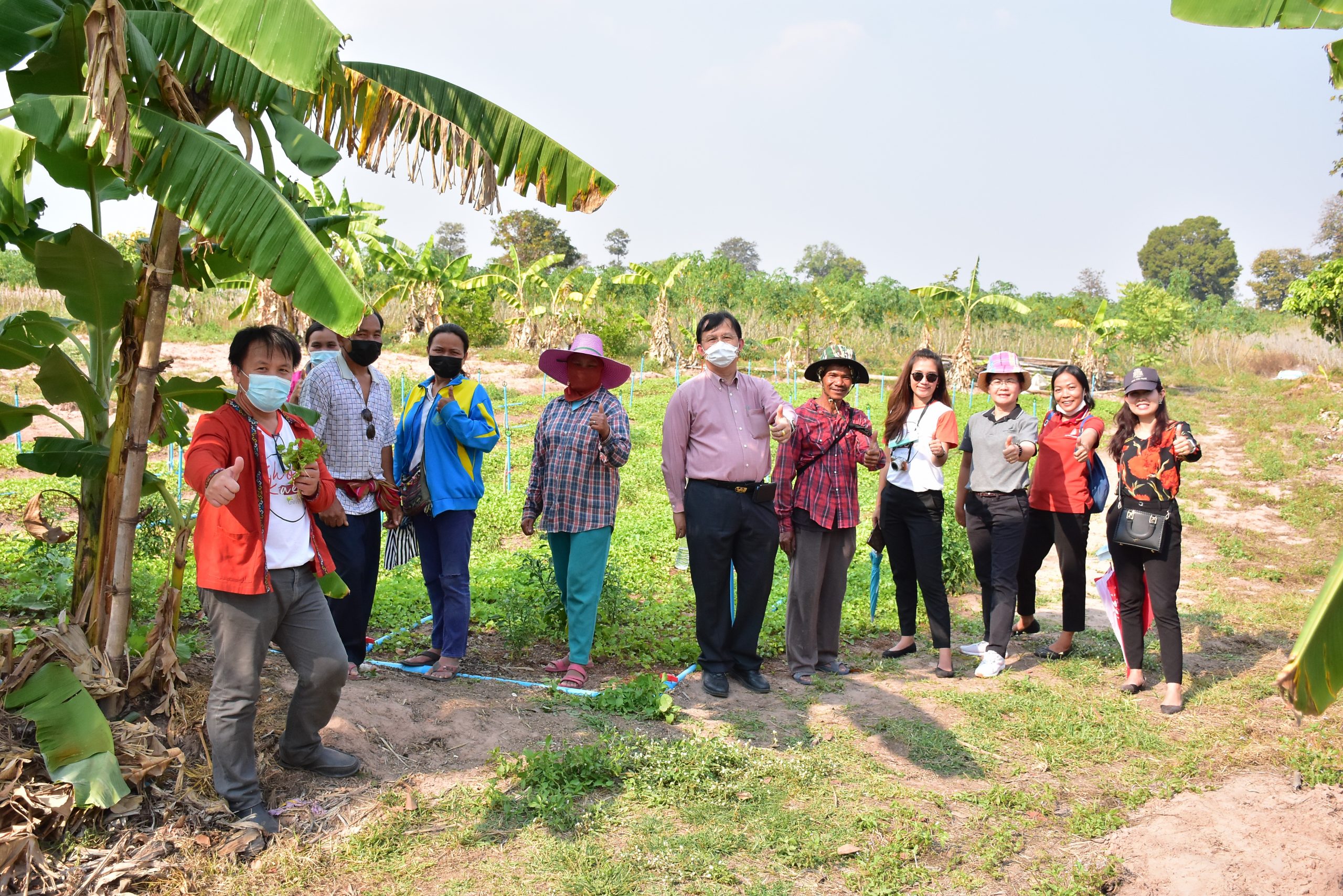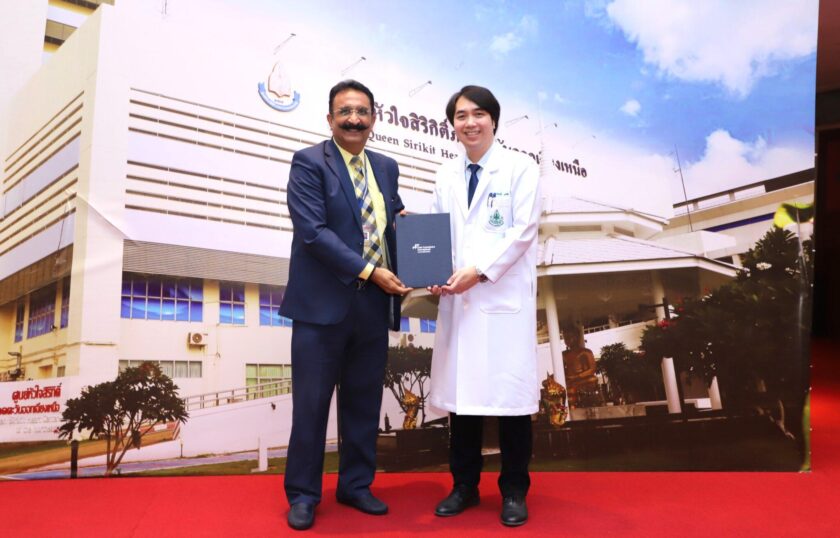The coordinating officers of the Academic Service Bureau of Khon Kaen University made a study visit to the Gotu kola plantation of the Nong Ya Ma Herbal Farming Enterprise group at Nong Lek Sub-district, Kosumpisai District, Maha Sarakham Province. This study trip was aimed at experiencing the farming management in order to in turn promote more farmers to grow herbs for their incomes.
February 16, 2021 – Asst. Prof. Natthapat Anateerakul, Assistant to the President for Education and Academic Service and Acting Deputy Director of the Academic Service Bureau led a team of officers from the Bureau, who are the coordinators of the University to Community Project, which comprises 9 sub-district, to visit and study the organic Gotu kola plantation at Nong Ya Ma Herbal Farming Enterprise group at Nong Lek Sub-district, Kosumpisai District, Maha Sarakham Province.
Asst. Prof. Natthapat Anateerakul said, “One mission of the Academic Service Bureau of Khon Kaen University is to bring knowledge, technologies, and innovations to the community. The Bureau is collaborating with the Faculty of Pharmaceutical Science to promote farmers to grow organic Gotu kola, and then manufacture the herb in the form of powder. This product can be sold to the Faculty of Pharmaceutical Science at a rate of 700 baht per kilogram. The Faculty of Pharmaceutical Science has no limit in buying the product, which will be further developed into pharma-cosmetics.”

Mr. Sathian Yodsing, Chairman of the Nong Ya Ma Herbal Farming Enterprise group explained about the growing of Gotu kola, “The important thing in growing Gotu kola is to grow certain trees to protect against poisonous matters around the plantation. These plants should be perennials or banana trees that can absorb poisonous matters that are blown to the plantation. There are 6 steps in the farming: 1) Preparing the soil by tilling and leaving it in the sun for one week before again tilling the whole plantation. Then compost is applied at a proportion of 100 kg/ 1 ngan of land, before photosynthetic organic matter is sprayed at the proportion of 50 cc/ one liter of water. 2) Planting young Gotu kola at a distance of roughly 12 inches from one another. 3) Watering the plants one time daily. 4) Spraying bio-fermented water mixed with photosynthetic microorganisms to nourish the leaves 20 days after planting. 5) Protecting against diseases by mixing tri-coder in the compost. If there are worms on the leaves, then spray with shredded earthworm and eradicating weeds regularly. 6) Reaping the plants after 45 days.”

Mr. Sathian Yodsing then explained about the manufacturing. “After harvesting, Gotu kola must be screened and washed 3 times with tap water, before washing with filtered water, drying in the open, and solar-drying. After this, Gotu kola is grounded before selling.”

Dr. Jarupong Prasopsuk, a senior professional scientist of the Office of Agricultural Research and Development, Area 3, Khon Kaen added, “Growing organic plants takes into account the environment and natural balance as well as bio-varieties. The ecology is managed so that it is similar to the nature. No chemical is used, no matter if it is chemical fertilizers, hormone or any synthetic matters. Only organic matters are used such as compost, manure, green manure, biofertilizers to improve soil and to make the plant strong and healthy, and can withstand diseases and pests on its own. The product is then safe for both the producers and consumers, and will not deteriorate the environment.”
The Academic Service Bureau will bring the knowledge to promote the farmers in the responsible areas so that they can farm the organic Gotu kola that can be sold to the Faculty of Pharmaceutical Science to produce into pharma cosmetics.”













